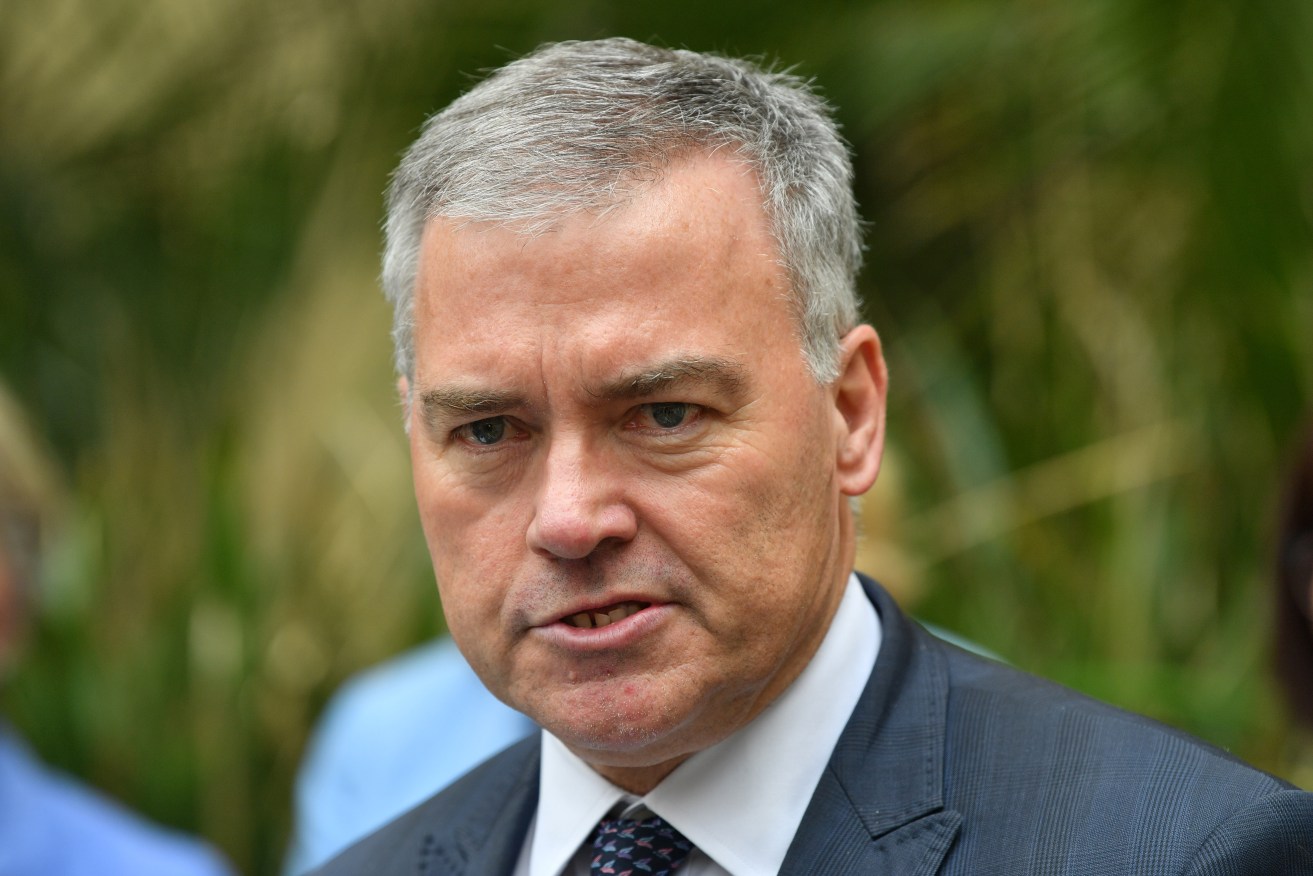Wade relents to pressure over contentious youth drug Bill
Health Minister Stephen Wade will today propose a suite of changes to a SA Government Bill to enforce mandatory drug treatment on young people, following criticism the proposed legislation would breach several of Australia’s human rights obligations.

Health Minister Stephen Wade. Photo: David Mariuz / AAP
Peak social service advocates, medical practitioners and interstate human rights lawyers have repeatedly attacked the Marshall Government over its Controlled Substances (Youth Treatment Orders) Amendment Bill, which would give the Youth Court the power to detain children for up to 12 months if they refused to attend treatment for drug or alcohol dependency.
Wade has previously said that children would only be detained as a measure of last resort, and that most orders would be “much shorter” than 12 months.
But key advocates, including the Guardian for Children and Young People, the Aboriginal Health Council of SA, the SA Network of Drug and Alcohol Services and the Youth Affairs Council of SA, have raised concerns over how and where children would be treated under the proposed legislation.
Lawyers from Monash University’s Castan Centre for Human Rights Law have also argued that the SA Government would breach several of Australia’s human rights obligations, including by arbitrarily depriving children of their liberty, if the proposed legislation were to pass Parliament.
Wade said yesterday afternoon that the Government had considered the Castan Centre’s concerns and had filed several amendments aimed at better protecting the rights of children under the proposed legislation.
The changes, which are expected to be debated in Parliament this afternoon, include making it mandatory for children to be assessed by medical practitioners before sentencing, and ensuring a treatment plan is presented to the Youth Court before an order is made.
The proposed changes also outline that children sentenced under the legislation would only be detained in an accredited assessment or treatment service, and not in a youth training centre.
“We are listening to feedback and acting accordingly,” Wade said.
“The Bill and the amendments aim (to) put the interests of children and young people first, ensuring the rights of children are respected as we fulfil our duty to protect children.
“These amendments underscore that the Bill is about therapeutic care, not punishment.”
Wade said that the hard-line measures outlined in the legislation were “not proposed lightly by the Government”.
He said South Australians were “extremely concerned” about the negative effect that drugs were having on society and that many people who are addicted to drugs “seem unable to realise the magnitude of the risk at which they are placing themselves and others”.
“This is a health intervention to a serious health problem faced by our young people,” Wade said.
“Mandatory detention is a last resort and does not replace treatment options for children who are not drug dependent”.
Guardian for Children and Young People Penny Wright, who has been one of the leading opponents to the Bill, said she was pleased that the Government was willing the strengthen the health focus of the proposed legislation.
“But it is still premature to ask the Parliament to sign up to this Bill in the absence of a settled and adequate model of care,” she said.
“I still have serious concerns about the human rights of young people who can be detained for up to one year with no clear right of review in that time.
“The young people affected must have a guaranteed right to legal advice and representation before an order can be made, orders must be reviewed regularly and any facility or treatment service must be subject to independent oversight.”
In a joint statement released this morning, the SA Network of Drug and Alcohol Services, the Youth Affairs Council of SA and the SA Council of Social Service called on the State Government to make further changes to the Controlled Substances Amendment Bill.
The changes include shortening the 12-month maximum detention period, ensuring assessment orders are regularly reviewed and ensuring that there are “fundamental considerations” of human rights incorporated into the legislation.
“In South Australia we have a number of excellent youth treatment services, however, a number of issues compromise young people’s voluntary engagement including limited access for rural and remote children, lack of culturally safe services for Aboriginal and culturally and linguistically diverse young people in many regions and a lack of intensive family support services,” the statement reads.
“We lack a substantive, state-wide assertive family-focussed intervention service of the type that has been found (to be) most successful in working with young people.”
Wade has previously indicated that the Bill, which has bipartisan support from Labor, would not go to a vote in parliament until the Government had consulted on the model of care.
The model of care is currently being drafted by government departments and is due to be released by the end of this year.
Want to comment?
Send us an email, making it clear which story you’re commenting on and including your full name (required for publication) and phone number (only for verification purposes). Please put “Reader views” in the subject.
We’ll publish the best comments in a regular “Reader Views” post. Your comments can be brief, or we can accept up to 350 words, or thereabouts.
InDaily has changed the way we receive comments. Go here for an explanation.




